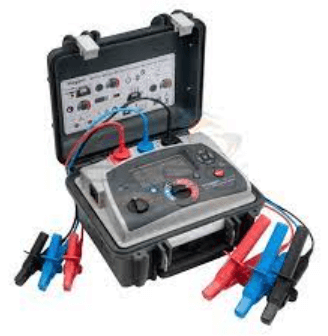Insulation Resistance Testing Made Easy: How to Hire the Right Equipment

Ensuring the integrity of electrical installations is vital for any project or facility. To guarantee the safety and efficiency of electrical systems, one indispensable tool emerges as a frontrunner: the insulation resistance tester for hire. This device is pivotal in identifying potential problems before they escalate into failures or safety hazards. However, the task of choosing the right equipment can appear overwhelming. This article is designed to streamline the selection process, providing essential insights to help you secure the ideal testing equipment for your requirements.
The Significance of Proper Electrical Testing Gear
Electrical safety testing is paramount to preventing accidents and maintaining operational integrity in any setting. The right testing equipment helps identify weaknesses in electrical insulation, a crucial step in preventing short circuits and electrical fires. By detecting these problems early, you can save on costly repairs and replacements down the line. Moreover, it’s not just about identifying current issues but also about predicting potential future failures, making it an indispensable part of any electrical maintenance routine.
Criteria for Choosing Your Testing Device
When looking for the ideal device, several factors come into play. First, consider the specific requirements of your project. Different environments and electrical systems may require unique testing capabilities, such as varying voltage levels or sensitivity settings. Additionally, ease of use and readability of results are important to ensure accurate assessments are made quickly and efficiently. This choice is crucial because the right device enhances your diagnostics’ accuracy and ensures that your testing processes are streamlined and efficient.
Evaluating Rental Options
While purchasing may seem like a straightforward option, renting offers flexibility and cost-effectiveness, especially for short-term projects or occasional needs. When exploring rental options, assess the condition and calibration of the equipment. It’s crucial that the device is well-maintained and accurate, ensuring reliable results during your testing phase. Renting also allows you to access the latest technology without the full investment, keeping your testing capabilities up-to-date with industry standards.
Benefits of Professional Assistance
Sometimes, the complexity of electrical systems requires more than just the right equipment; it requires expertise. Many rental services offer the guidance of skilled professionals who can provide additional insights into the testing process. This support can be invaluable, especially for those less familiar with electrical diagnostics. Having an expert at your disposal not only ensures that you’re using the equipment correctly but also helps in interpreting the results accurately, which can be critical in making informed decisions.
Implementing Best Practices in Electrical Testing
Beyond just securing the equipment, understanding how to effectively utilize it is key. This involves adhering to safety protocols, such as disconnecting power before testing and using protective gear. Familiarize yourself with the device’s features and capabilities to make the most out of your testing procedures. Regular testing not only ensures safety but also extends the lifespan of electrical installations. Implementing these best practices not only safeguards your equipment but also fosters a culture of safety and preventative maintenance within your organization.
Read also: AWS Security Best Practices: Safeguarding Your Data in the Cloud
Conclusion
Choosing an insulation resistance tester for hire doesn’t have to be complicated. By considering your project’s specific needs, evaluating rental options carefully, and possibly seeking professional advice, you can ensure you have the right tool in hand. This approach not only bolsters safety but also contributes to the longevity and reliability of your electrical systems. Remember, the goal is to make informed decisions that lead to efficient and safe electrical management, ultimately saving time and resources in the long run. This thoughtful selection process helps minimize the risk of electrical failures, thereby protecting both people and property from potential harm. It also enhances the overall performance of electrical systems, ensuring they operate at optimal levels without unexpected disruptions.






